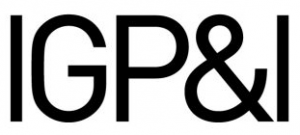In recent years, customs fines in Dakar have become both more frequent and more expensive. Vessels are often detained and only released upon payment of the fine or posting of security for payment.

Avoiding fines and detention in Senegal – preparation is key
Written by
Jannike Rognøy Olsson
Published 07 August 2024
In addition to customs authorities, Immigration authorities also carefully scrutinize crew documentation and if any discrepancies are found, may confiscate crew passports and summon the Master for questioning. The Marine Anti-Corruption Network MACN and the International Group of P&I Clubs have published a Guidance Document that provides an overview of the documents required by the authorities during the pre-port call, the inwards clearance and the outwards clearance processes. Our correspondent, Budd Senegal, explains the different agencies involved and what to expect when calling Dakar.
Two different subdivisions of Senegalese Customs are responsible for carrying out controls on vessels. Both can levy fines.
Customs Bulk and Bagged Cargo Subdivision (Service des Produits Pondereux)
Since 2019, vessels have been at an increased risk of Customs fines because Customs’ Bulk and Bagged Cargo Subdivision has been monitoring discharge operations and automatically levying fines if there is any discrepancy between the quantities of cargo recorded at the weighbridge (including overlanded cargo) and the quantities shown on the cargo manifest. The MACN/IG Guide warns that the absence of a ship-appointed surveyor could result in exaggerated claims. As a precautionary measure it is therefore important that owners and/or charterers appoint a tally surveyor.
Our correspondent notes that when a vessel carrier is expected to complete discharge of bulk or bagged cargo over a weekend, Customs will detain the vessel with a view to securing payment of any applicable fine. In such cases, the vessel should immediately contact their local P&I correspondent with a view to negotiating with Customs and ensuring that the vessel is able to sail on time.
Customs Port Surveillance Subdivision (Service de Surveillance Portuaire)
This service has the authority to level fines for any perceived discrepancies in declarations regarding bunkers, ship’s stores, personal effects or goods in transit or for transshipment. The MACN/IG Guide provides a list of items required in the inventory lists. The report must be updated with the exact quantity upon berthing.
Mis-declaration including a discrepancy in quantity may also be considered an attempt to avoid paying Customs duties. The resulting Customs fines are imposed in accordance with Article 62 of the Senegalese Customs Code which provides that:
Cargo arriving by sea must be shown on the manifest or loading list.
The manifest must be signed and dated by the master of the vessel or his representative. It must provide sufficient information to indicate the type and quality of the cargo as well as any possible prohibitions, in particular:
The number of packages;
The brands and numbering of the said packages;
The nature of the cargo;
The loading and delivery destinations.
The Managing Director of Customs may, whenever it is deemed necessary, modify the list of mandatory indications.
It is forbidden to list as one single unit in the same manifest several sealed packages assembled together in any way or form.
(The French wording of Article 62 may be found here).
Immigration controls
In addition to the above, Budd Senegal reports that in recent years, vessels have had to face a new problem following the intensification of border controls on inward bound vessels by the Senegalese Immigration Services.
Dakar’s Immigration Services demand that all passports and seamen’s books are accurate, up to date, and signed where appropriate.
Seamen’s books should be:
correctly stamped in the right place with the shipowner’s stamp;
completed in full;
indicate the crew member’s correct rank;
show full and accurate joining and leaving ports and dates.
When an anomaly is found in the crew’s travel documents during inward clearance visits on board, Dakar’s Immigration Services will not hesitate to confiscate crew passports and summon the Master to their offices for questioning. Under law, any irregularity in travel documents can result in criminal charges and, in principle, the Master of the vessel can be arrested and sent to prison.
So far, Budd Dakar has been successful in resolving such issues with Immigration amicably.
Immigration Officers do not always speak fluent English and communications problems with the crew can create a hostile environment. To avoid any escalation, it is vital to show due respect to Immigration officers in their capacities as representatives of state authority.
Additional recommendations
Members intending to call Dakar should carefully review the MACN/IG Guidance and the Master should ensure that the preparations for Port Entry are in line with the guidance.
Before arrival check with the local agent for any additional or new requirements.
For bagged cargos, appoint a tally surveyor to attend during discharge.
The Master should personally carry out the formalities on board with the Customs officers in the presence of the vessel’s agent
In the event a discrepancy is found by customs or immigration authorities, immediately contact the correspondent for assistance and notify Gard.
We thank Mr. Samba Fall, BUDD Senegal for his assistance in preparation of this article.


